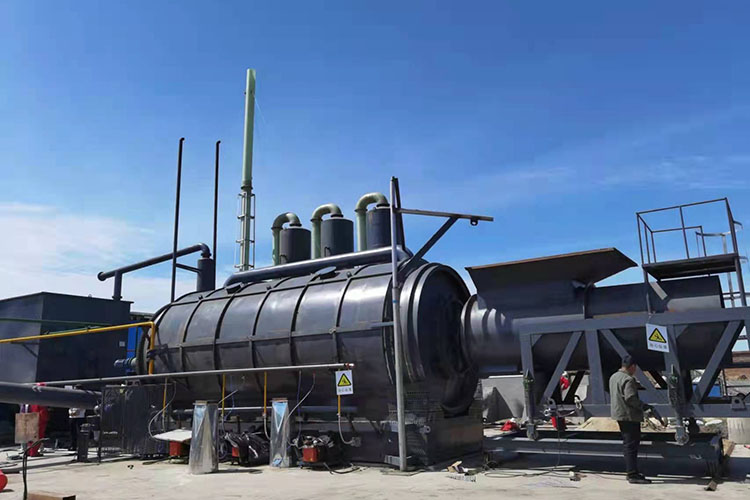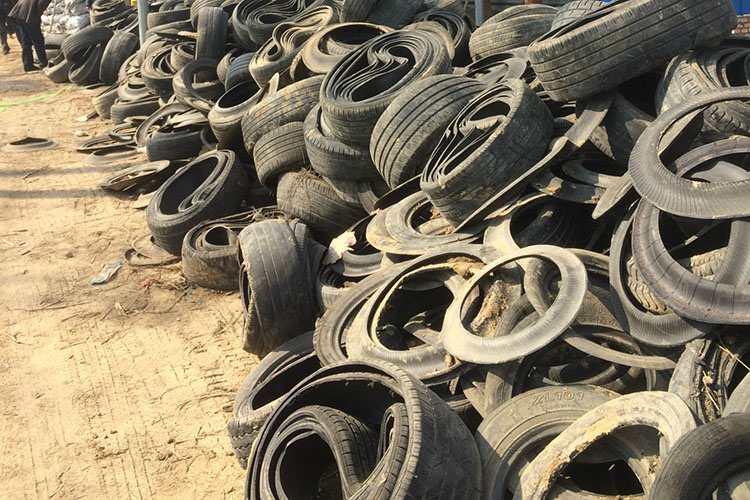Tire refining equipment plays an important role in modern industry, especially in the treatment of waste tires and the utilization of renewable resources. To ensure the safe, stable, and efficient operation of the equipment before it is put into use, comprehensive and meticulous preparation work is required. These preparations not only include inspection and debugging of the equipment itself, but also involve training of operators, planning of production sites, and implementation of environmental protection measures. Only after all these steps are fully prepared can the tire refining equipment enter the formal production stage.
Firstly, site preparation is one of the important steps before the installation of tire refining equipment. The installation position of the equipment must be flat, and the site should have good ventilation conditions and sufficient space for the smooth operation and maintenance of the equipment. In addition, the site also needs to be equipped with necessary infrastructure, especially electricity, water sources, and sewage systems. During the operation of tire refining equipment, a large amount of electricity is consumed, and a certain amount of wastewater and exhaust gas are also generated. Therefore, ensuring the normal operation of these infrastructures can not only avoid interruptions in the production process, but also provide guarantees for the smooth progress of production.

Equipment inspection is the core step in preparation work. All components of the equipment must be installed correctly according to the manufacturer's instructions, especially the sealing of the equipment. The working process of refining equipment involves high temperature and high pressure. If the sealing is poor, it may lead to oil and gas leakage, thereby causing safety hazards. In addition to sealing, the electrical system of the equipment must also undergo strict inspection. The connection of wires and switches must comply with safety standards to ensure that the equipment can start and operate normally. During the inspection process, it is necessary to add lubricating oil to key components such as bearings to ensure that the equipment does not malfunction due to lack of lubrication during operation.
The implementation of safety measures is also crucial while conducting equipment inspections. Personnel operating tire refining equipment need to receive specialized training to understand the operating procedures, safety regulations, and emergency response methods of the equipment. The refining process is accompanied by high temperature, high pressure, and chemical reactions, and any improper operation may lead to accidents. Therefore, only personnel who have received sufficient training can operate on duty. In addition, the site where the equipment is located should be equipped with sufficient fire-fighting equipment to prevent accidents such as fires during operation. In order to prevent equipment from being dangerous due to excessive pressure, the pressure relief system and ventilation system must undergo detailed inspection and debugging to ensure that they can function in a timely manner under abnormal conditions.
Trial operation and debugging are the final steps to ensure that the equipment can operate normally before being put into use. Generally speaking, tire refining equipment needs to undergo no-load trial operation before formal operation. This means starting the equipment and letting it run for a period of time without adding any raw materials to detect the overall status of the equipment. During this process, technicians need to closely monitor the temperature and pressure changes of the equipment to ensure that they are always within a safe range. If any abnormal situation is found, such as high temperature or low pressure, it must be adjusted and repaired in a timely manner. In addition, technicians need to further optimize the operating parameters of the equipment, such as heating temperature and speed, based on the results of the trial operation, to ensure that the equipment can achieve the best working condition when it is officially put into operation.
The preparation of raw materials is an essential step before the tire refining equipment is put into use. Usually, waste tires need to be pre treated, especially larger tires, which need to be crushed or cut into smaller blocks first. This processing can effectively improve the efficiency of tire refining, enabling the raw materials to be heated more evenly, thereby increasing the refining yield. At the same time, operators also need to ensure sufficient raw material reserves to support continuous production. During the storage process, the raw materials should be kept as dry as possible to prevent moisture from entering the refining equipment and affecting its normal operation.

After the equipment and raw materials are ready, the inspection of environmental protection facilities is also crucial. The process of refining tires will produce certain exhaust gases and wastewater. If discharged directly without treatment, it will cause serious pollution to the environment. Therefore, the inspection and commissioning of the exhaust gas treatment system and wastewater treatment system must be in place. The condenser and scrubber in the exhaust gas treatment system need to be kept in good condition to ensure that harmful gases can be effectively removed. At the same time, the wastewater treatment system must also be able to operate normally, timely treat the wastewater generated during the production process, and avoid polluting the soil and water sources.
In summary, a series of preparatory work must be carried out before the tire refining equipment is put into operation. These tasks not only include equipment installation and debugging, but also involve training of operators, planning of production sites, and implementation of environmental protection facilities. Only with sufficient preparation in all aspects can the tire refining equipment enter formal production and ensure the safety, stability, and efficiency of the production process. The implementation of this series of preparatory work not only helps to improve production efficiency, but also effectively prevents various safety hazards, ensuring that the equipment can create long-term and stable benefits for the enterprise.
Yongle Environmental Protection is mainly engaged in the research and development, production and sales of complete sets of technical equipment for organic solid waste disposal and comprehensive utilization. Production and manufacturing, domestic waste treatment equipment, tire pyrolysis equipment, medical waste disposal equipment, hazardous waste disposal equipment, and achieve efficient and comprehensive utilization of resources through independently developed low-temperature anaerobic pyrolysis equipment technology solutions.
Tags:What are the preparation work before putting tire refining equipment into operation,,YONGLE GROUP
 Latest news
Latest news


























